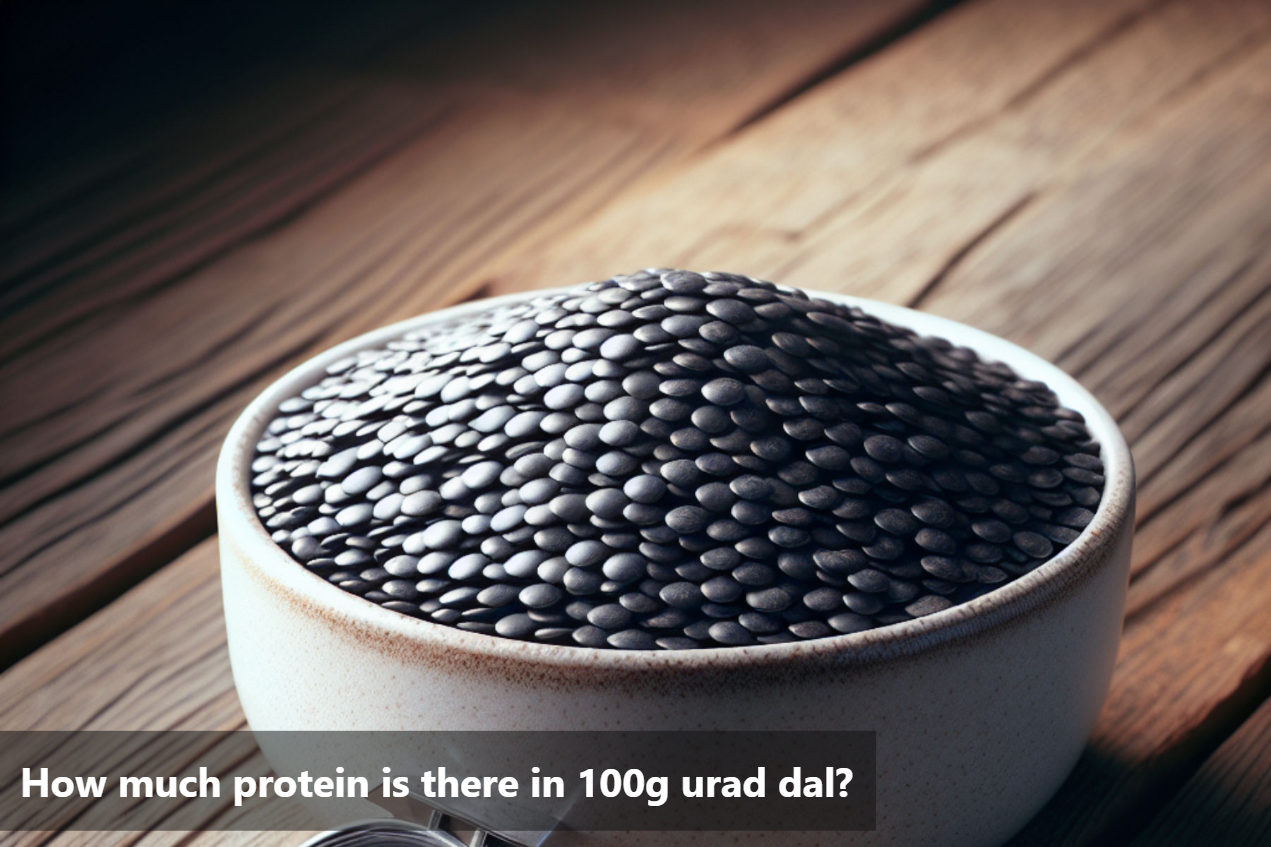
How much protein is there in 100g urad dal?
Urad dal, also known as black gram, holds a significant position in Indian cuisine for its versatility and rich nutrient profile. This humble lentil is not only a staple in numerous Indian dishes but also packs a powerful punch when it comes to protein content. In just 100g of urad dal, you can find a substantial amount of protein that contributes to a well-rounded diet.
One of the key highlights of urad dal is its impressive protein content per 100g. This legume serves as an excellent plant-based source of protein, making it highly valued in vegetarian and vegan diets. The protein content in urad dal not only supports muscle growth and repair but also aids in overall body functions.
When it comes to meeting your daily protein requirements, incorporating urad dal into your meals can be a game-changer. Whether you enjoy it in the form of comforting dal recipes, crispy vadas, or nutritious dosas, there are endless ways to savor this nutrient-packed legume.
Understanding the protein content in 100g of urad dal sheds light on its essential role in enhancing the nutritional quality of meals and promoting a balanced diet rich in protein.

Nutritional Composition of Urad Dal
Nutritional Content |
Amount Per 100 g |
Carbohydrate |
58.99 |
Energy |
341 Kcal |
Protein |
25.21 |
Total Fat |
1.64 |
Dietary Fibre |
18.3 |
Niacin |
1.447 |
Folates |
216 |
Sodium |
38 |
Potassium |
983 |
Iron |
7.57 |
Zinc |
3.35 |
Phosphorus |
379 |
Calcium |
138 |
Magnesium |
267 |
Factors affecting protein content
-
Variety of Urad Dal:
Different varieties may have varying protein concentrations.
-
Growing Conditions:
Soil quality, climate, and agricultural practices can influence protein content.
-
Processing Methods:
The way urad dal is processed, cleaned, or polished can affect its protein levels.
-
Storage Conditions:
Improper storage, exposure to moisture, or pests can degrade protein content over time.
-
Maturity of the Dal:
The stage at which urad dal is harvested can impact its nutrient composition, including protein.
-
Cooking Methods:
The way urad dal is cooked or prepared can affect protein digestibility, although the protein content remains relatively stable.
-
Origin and Quality:
The quality of the urad dal and its origin can influence its protein content.
-
Nutrient Depletion:
Over-farming or soil depletion can lead to lower nutrient content, including protein.
-
Presence of Foreign Matter:
Contamination or presence of other seeds or grains can dilute the protein content.
Purity and Authenticity:
Adulteration or mixing with other dals can affect the actual protein concentration in urad dal.
Ways to Incorporate Urad Dal in Diet
To incorporate Urad Dal into your diet is not only a flavorful choice but also a smart decision for boosting your protein intake. Here are some simple and effective ways to include this nutritious legume in your daily meals:
Urad Dal Curry - Prepare a delicious and creamy Urad Dal curry flavored with aromatic spices such as cumin, coriander, and turmeric. Pair it with steamed rice or roti for a wholesome meal.
Urad Dal Soup - Create a hearty Urad Dal soup by boiling the lentils until soft, adding vegetables of your choice, and garnishing with fresh herbs like cilantro. This makes for a nutritious and comforting option, especially during colder months.
Urad Dal Dosa - Make protein-packed Urad Dal dosas by fermenting a batter of Urad Dal and rice, then spreading it thin on a hot griddle. Serve with coconut chutney or sambar for a South Indian twist.
Urad Dal Salad - Sprout Urad Dal for a crunchy and protein-rich addition to salads. Combine with fresh vegetables, a squeeze of lemon, and a drizzle of olive oil for a light and nutritious meal option.
Incorporating Urad Dal into your diet not only adds variety but also ensures a good protein intake. Experiment with these versatile and tasty ways to enjoy the benefits of this protein-rich legume.

Quantifying Protein Levels in 100g Urad Dal
It is evident that urad dal is a nutritional powerhouse with high protein content per 100g, making it a valuable addition to a healthy diet. With approximately 25g of protein in 100g of urad dal, this legume serves as an excellent plant-based protein source for individuals looking to meet their protein requirements.
Moreover, the protein content in 100g of urad dal compares favorably with other protein sources, highlighting its significance in vegetarian and vegan diets. By including urad dal in meals, individuals can boost their protein intake, support muscle growth and repair, and improve overall satiety.
Incorporating urad dal into daily meals can be simple and enjoyable. From traditional dishes like dal makhani to innovative recipes like urad dal pancakes, there are numerous ways to enjoy the benefits of this nutrient-dense legume.
FAQs
-
Is urad dal a good protein source for vegetarians?
Yes, urad dal is an excellent protein source for vegetarians and is often used in staple vegetarian dishes.
-
What are the other nutritional benefits of urad dal?
Urad dal is rich in fiber, iron, magnesium, and potassium, making it a wholesome and nutritious choice for a balanced diet.
-
How can urad dal be included in a daily diet for protein intake?
Urad dal can be used to prepare delicious dishes like dal makhani, idli, dosa, and vada, ensuring a tasty way to meet your protein requirements.
This Blog post is an initiative by Lo! Foods, to provide accurate and Nutritionist / Doctor approved information related to Health. Lo! Foods is India's leading brand for Everyday Functional Foods. Foods designed for specific Health conditions or Needs. Lo! Foods also runs India's largest range of Low Carb Healthy Cloud Kitchens, under the brand names of Lo!, ProteinChef, ATH (All Things Healthy) and DiabeSmart.















Leave a comment
Your email address will not be published.